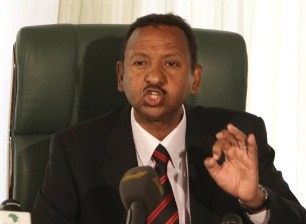Sudan’s NCP says committed to implementing Islamic law
February 25, 2010 (KHARTOUM) – Sudan’s ruling National Congress Party (NCP) reiterated its position on implementing Islamic Shari’a law in the country as part of its elections programme.

This week at a meeting between NCP and Sudan People Liberation Movement (SPLM) in Cairo hosted by the Egyptian government discussed the issue of Islamic law implementation. Both sides were deadlocked on their stances with SPLM calling for a secular state.
But the Sudanese Undersecretary of Foreign affairs Mutrif Sideeg and member of the NCP delegation said that this position is not negotiable.
“We will not abandon our Shari’a nor do we call on the others to accept what they do not accept. We accepted the principle that citizenship is the basis of rights and duties, and we have accepted the principle of unity in diversity, and therefore will not commit others to what we are committed to. We do not accept that the others void our personality, religion and identity under any circumstances,” he said.
The major Northern opposition parties in Sudan are supportive of Islamic law implementation with varying views on modalities. The Umma party and Democratic Unionist Party (DUP) with hegemony over two major religious sects will find it hard to publicly support a secular state so as not to be at odds with their bases.
The Umma party leader Al-Sadiq Al-Mahdi has consistently said that Islamic law can be implemented within the context of granting all citizens equal rights regardless of their religious background.
Currently semi-autonomous South Sudan is excluded from the application of Islamic law but observers say that this has deepened the rift between North and the South and diminished hopes of making unity attractive in the 2011 referendum.
(ST)
